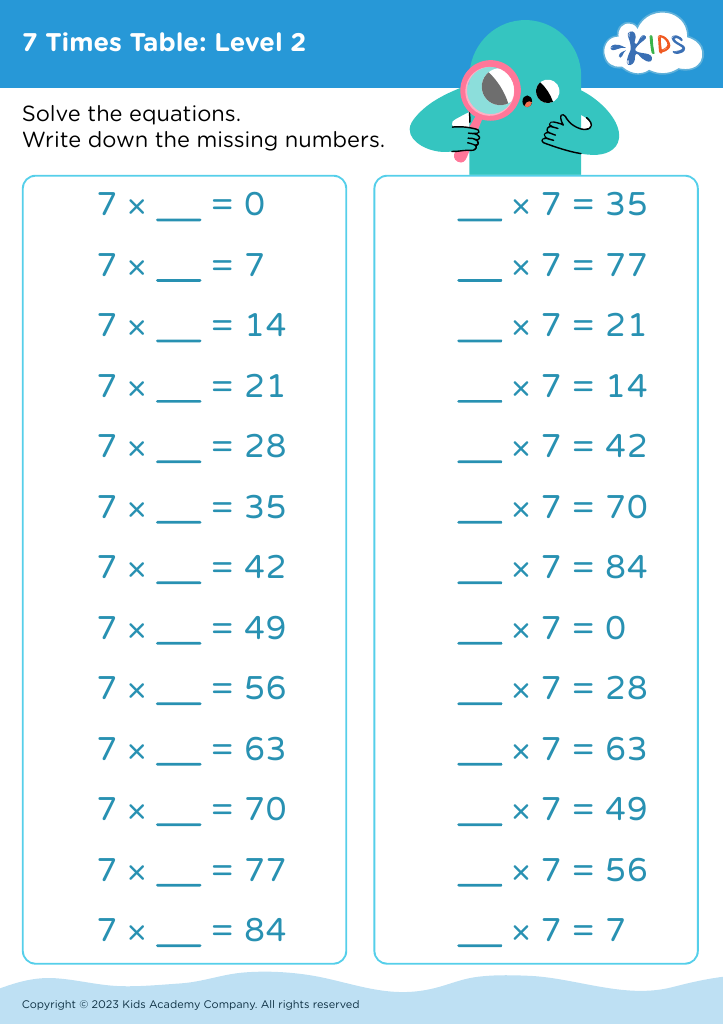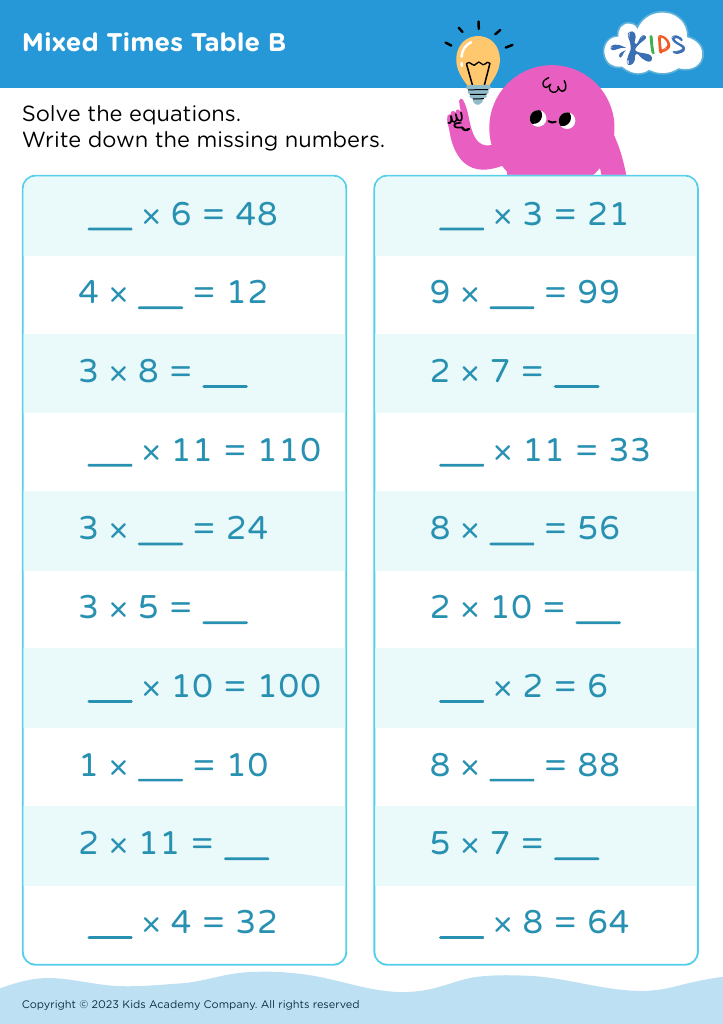Mental math improvement Math Worksheets for Ages 4-9
7 filtered results
-
From - To
Enhance your child's math skills with our engaging Mental Math Improvement Worksheets for ages 4-9! Designed to make learning fun, these worksheets feature colorful illustrations and interactive exercises that motivate young learners. Our carefully crafted activities focus on essential mental math strategies, helping children improve their addition, subtraction, and number sense with ease. Perfect for both home and classroom environments, these resources promote critical thinking and build confidence in early math skills. Whether you're a parent or an educator, our printable worksheets are an excellent tool to support your child's mathematical journey and prepare them for future success. Get started today!
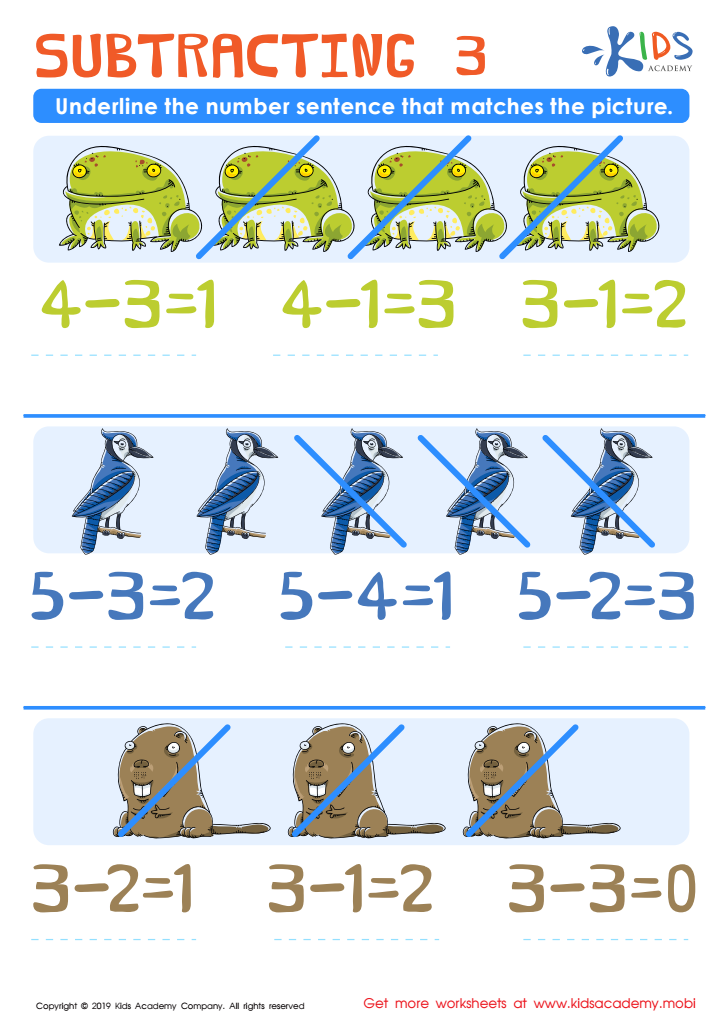

Subtracting 3 Worksheet
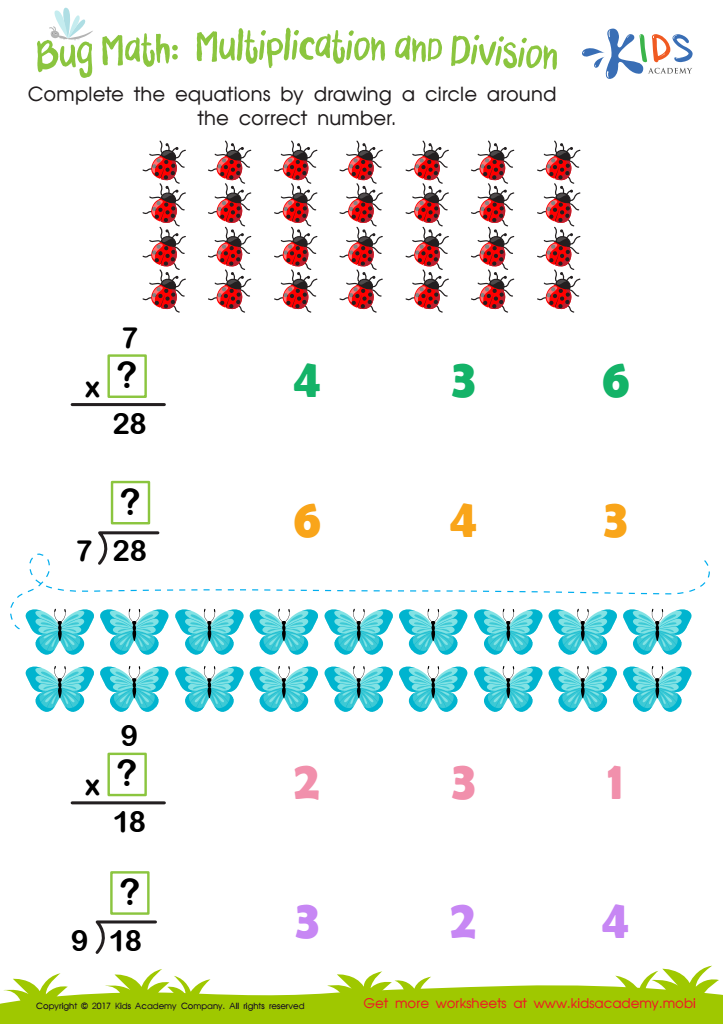

Multiplication and Division Worksheet
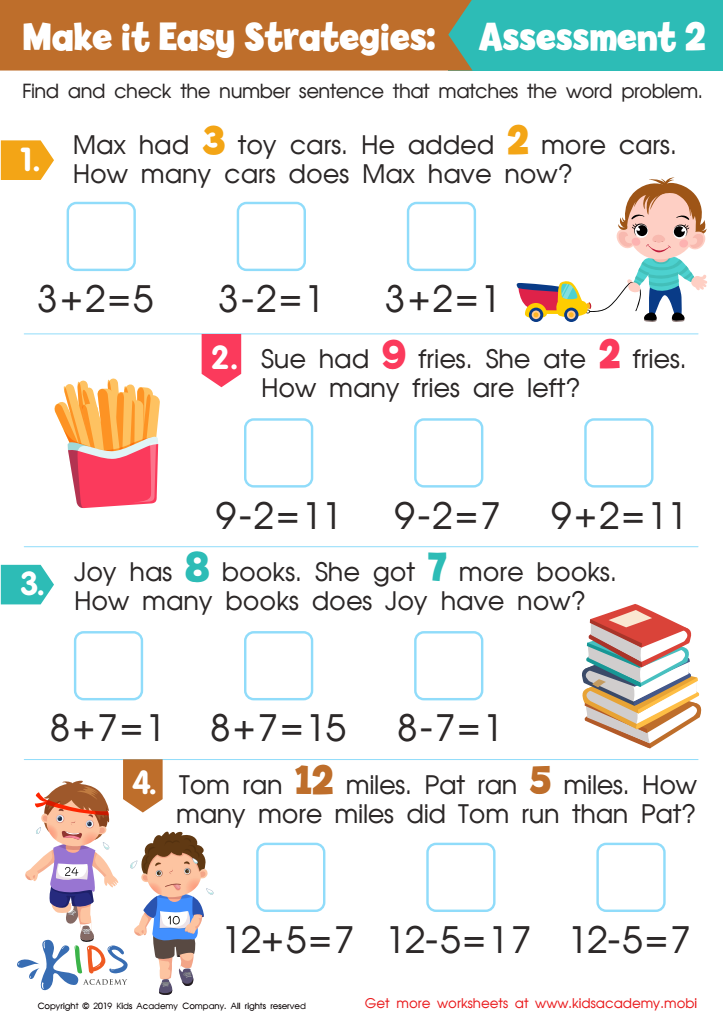

Make it Easy Strategies: Assessment 2 Worksheet
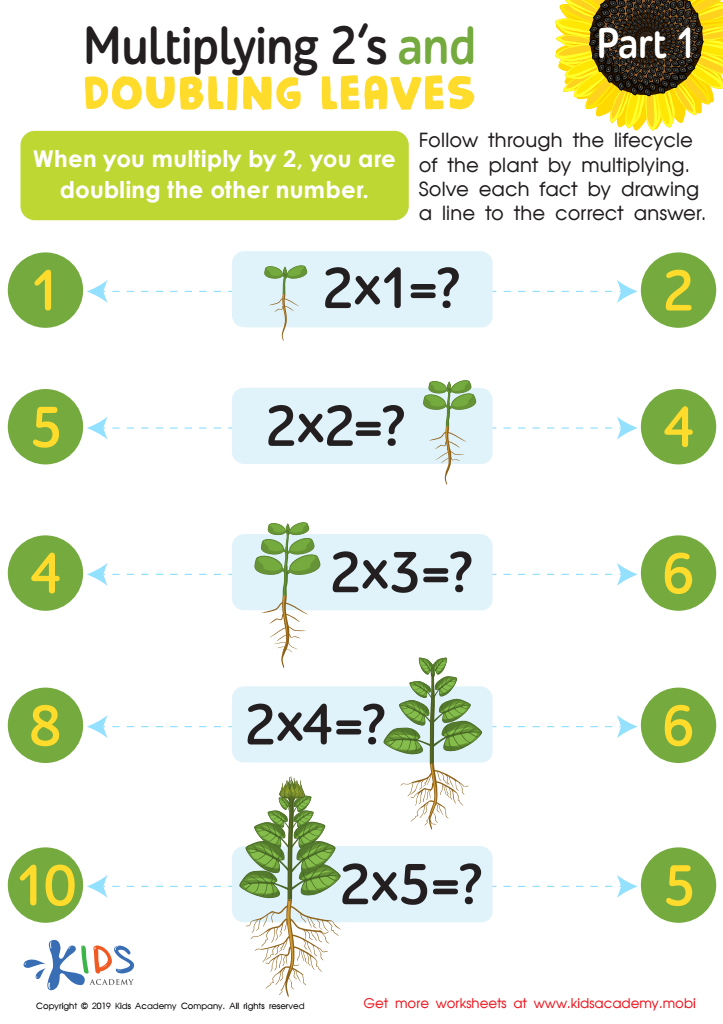

Multiplying 2’s and Doubling Leaves Part 1 Worksheet
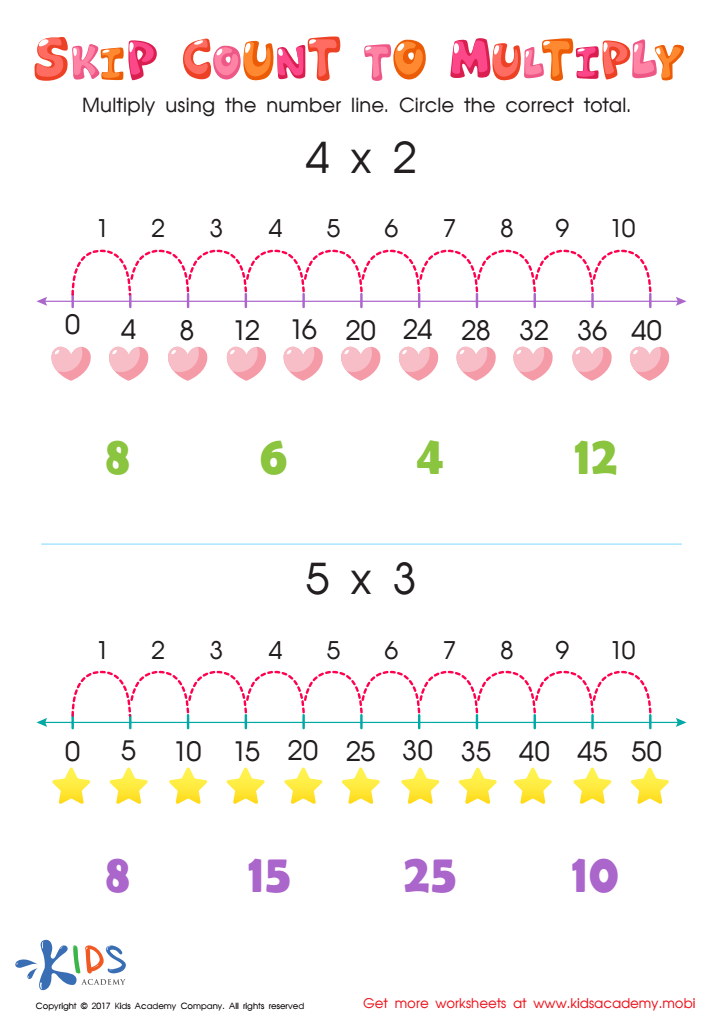

Skip Count Multiplication Worksheet
Mental math skills are crucial for children aged 4-9, and both parents and teachers should prioritize their development for several reasons. Firstly, mental math fosters numerical fluency and confidence. As children become adept at performing calculations in their heads, they develop a stronger self-assurance in their math abilities, which can positively impact their overall academic performance. Additionally, mental math enhances critical thinking and problem-solving skills. By practicing estimation and quick calculations, children learn to analyze situations and make decisions more efficiently.
Moreover, mastering mental math lays a solid foundation for future mathematical learning. For young learners, the ability to perform calculations mentally allows for a deeper understanding of more complex concepts such as addition, subtraction, multiplication, and division. This foundational skill can ease the transition when they encounter more challenging mathematical problems later on.
Finally, early practice in mental math can help reduce math anxiety. Children who feel confident in their abilities are less likely to fear challenging tasks and more likely to engage in learning with enthusiasm. Thus, investing time in improving mental math skills not only enhances a child's current math abilities but also supports a lifelong positive relationship with mathematics. Parents and teachers play a vital role in nurturing these skills during formative years.
 Assign to My Students
Assign to My Students
